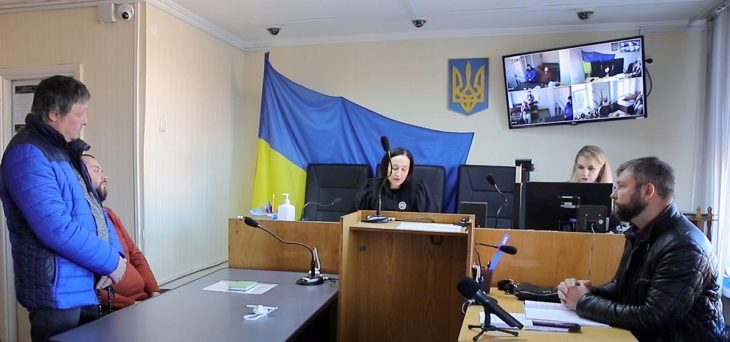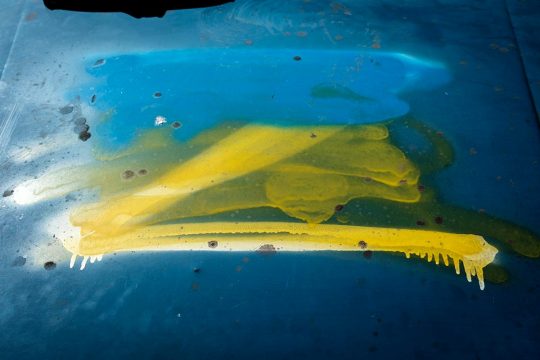The ruling came on October 17. A hearing the previous week had been interrupted by an air raid. But on Monday, despite another alert, the Leninsky District Court in Kropyvnytskyi, capital of the Kirovohrad region (central Ukraine) delivered its decision on this case of crimes against national security since the introduction of martial law on February 24, the day when Russia launched its aggression.
The Ukrainian citizen in the dock, Roman Serhiyovych Zhmarev, hails from the nearby Dnipropetrovsk region. He was born in 1974, is married, and has two adult children. He has a secondary school diploma, is unemployed, has a fixed address and is not registered in a psychiatric or drug addiction care institution. In the 1990s, he was convicted twice and served time in prison for drug-related cases.
Screenshots of army positions
According to the indictment, on July 12, while at his home in Kropyvnytskyi, the accused sent his daughter via Telegram a screenshot of a map, which showed the location of the Ukrainian army in Slovyansk, a city in the eastern Donetsk region.
Later that day, Zhmarev sent his daughter another screenshot of a map showing the location of the armed forces near the town of Avdiyivka, also in the Donetsk region. The shared maps contained geolocation data. Authorized state bodies do not publicly disseminate such information.
During his reading of the indictment, prosecutor Volodymyr Leshchenko did not explain how the security services discovered the exchange between father and daughter. He said there were no victims and no material damage was caused. Zhmarev is accused, he explained, under martial law and the Criminal Procedure Code, of unauthorized dissemination of information about armed movements and military supplies of the Armed Forces of Ukraine or other military formations.
The prosecutor added that on September 12, a guilty plea agreement was reached between the security services of Ukraine and the accused. The parties agreed on a suspended sentence of five years, with a probationary period of three years.
An example for everyone
According to the defendant's lawyer, Bohdan Ursalenko, no one pressured his client and it was his personal choice to approve the plea agreement. "My client, not knowing the legislation, sent these images to his daughter. The investigation established that he had no intention of causing damage to the armed forces," he said.
Ursalenko then addressed journalists present at the hearing. He stressed that his client is an ordinary Ukrainian citizen, that he had no intention to harm his country. "The public interest of this case is to point to the behaviour of our spoiled society where everyone has a cell phone to take photos and videos, so that people do not interfere with the armed forces and other units without even meaning to."
Zhmarev, he emphasizes, is sorry and promises not to do anything like that again. "Since journalists will give this media coverage, they will make sure -- if I may use this analogy -- that he is crucified today for other people to know it’s forbidden to take photos containing geo-data of the armed forces, because the enemy can use them and send drones or guide their missiles to damage our victory," added Ursalenko.
"I didn’t know it was illegal"
The accused told the court that he is temporarily out of work, previously worked in Poland and recently received a summons to join the army. "I received a summons from the Military Commissariat, and while I was going through the medical examinations, I was diagnosed with hepatitis C. I have to go to hospitals, I was prescribed treatment, that's why I'm not working now," he said.
“These were screenshots from public sources, from Google Maps, I didn't know it was illegal,” he continued. "I was communicating with my daughter, I just brought this information to her attention. Now, as it has been explained to me, yes, I am guilty."
At the end of the hearing, Leninsky District Court Judge Olena Lukyanova approved the plea agreement and found the defendant guilty. She sentenced him to five years in prison, suspended for two years on probation. Zhmarev undertakes to report periodically to the probation officer, informing him of any changes of residence and work. His cell phone, which was seized as physical evidence, will be returned to him.
This report is part of a series on war crimes, produced in partnership with Ukrainian journalists. A first version of this article was published on the "Sudovyi Reporter" website.







